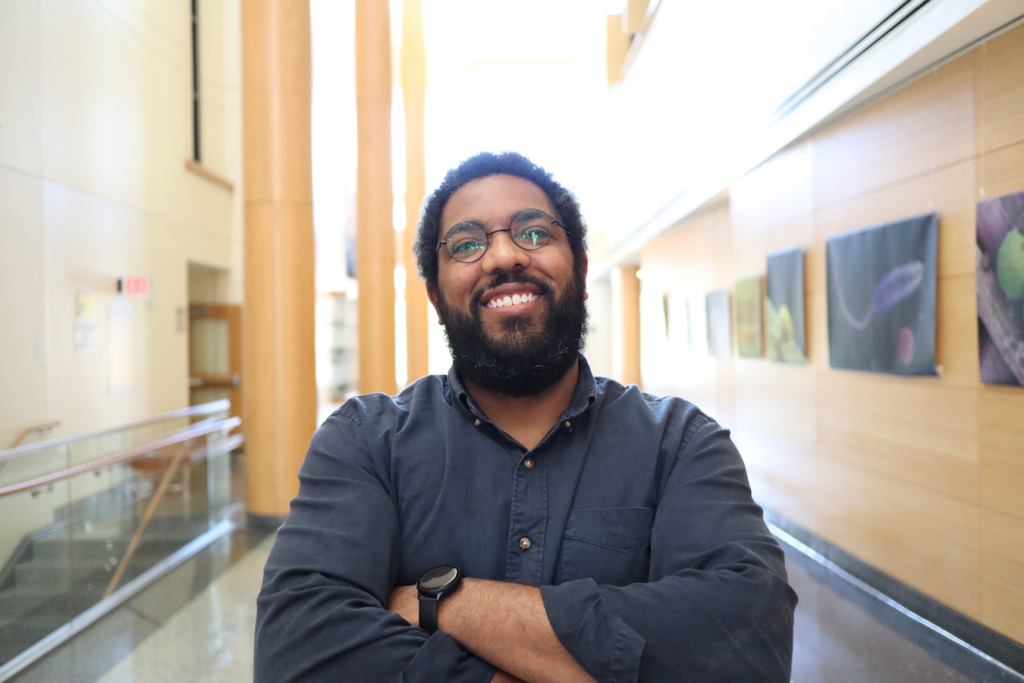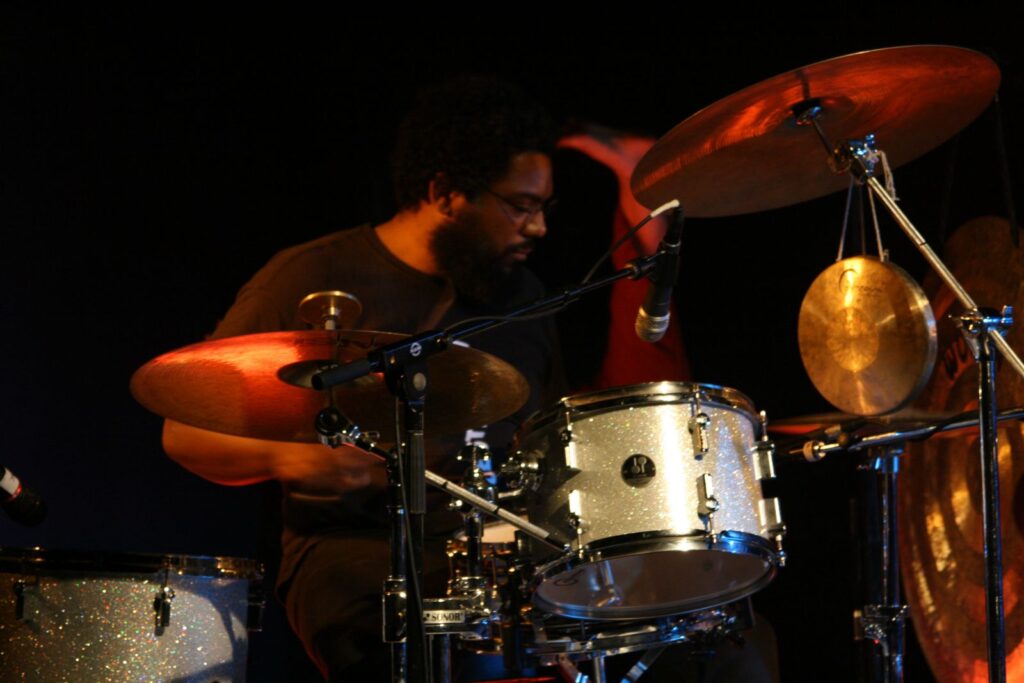While preparing for the most exciting phase of his career as a neuro-scientist, Nikolas Francis unwinds by listening to dub, a derivative of Jamaica’s reggae music.
Francis, 40, is a member of the University of Maryland Global Campus’ (UMGC) Brain and Behavior Institute. As an assistant professor, he will be conducting extensive research on how the brain engages with sound, this fall.
It’s a challenge Francis looks forward to, but he will always find time to delve into his collection of dub records. A jazz drummer himself, Francis’ musical influences also include hip hop acts like A Tribe Called Quest, Mos Def and The Roots. He remembers the first time he heard dub in Iowa about 20 years ago.

“King Tubby, Randy’s All Stars, Yabby You…I like all kinds of dub. I like that era when they recorded live with all kinds of effects,” Francis said.
He saves his greatest admiration for King Tubby though, who was born Osbourne Ruddock in 1941 in Kingston. ‘Tubs’ was reggae’s in-demand audio engineer for many years, fine-tuning the music of countless artistes such as Yabby You, Augustus Pablo and Linval Thompson, as well as producers Bunny Lee and Lee “Scratch” Perry.
King Tubby, nicknamed after his mother who was a Tubman, was at his creative peak when he was murdered by gunmen at his gate in the gritty Waterhouse community in February, 1989. He was 48.
The aural sounds King Tubby created at his makeshift studio can be heard in contemporary idioms like house, trap and dubstep. Francis has grown to appreciate his genius.

“I like the way how King Tubby did his thing. He was an engineer and a musician and he made all of this great stuff. When you listen to that music, it’s like you’re learning about engineering,” he said.
Among Francis’ go-to records is His Majesty’s Dub, a 1983 album with King Tubby acting as main engineer along with his protégé Prince (later King) Jammy.
Nikolas Francis’ appreciation for reggae and its derivatives comes as no surprise. A self-described ‘jamspanic’, his father is Jamaican and his mother is from El Salvador.
His father, Dennis M. Francis is from Islington, a sleepy district in St. Mary parish which also produced Capleton, the man with some of the most scorching lyrics in dancehall music.
A computer scientist, Francis senior grew up in Kingston and attended Campion College during the 1960’s. He emigrated to the United States in the early 1970’s and attended the University of Wisconsin, where he met his wife.
Nikolas and his older sister were born in Wisconsin.
Much as he enjoys dub, it’s the science of the brain that will occupy Francis’ time this semester.
“I have been training for over 15 years as a neuroscientist, and now I am being given lab space, start-up funding, and campus-wide support with my appointment to both the Biology Department and the Brain and Behavior Institute. As a researcher, this is basically the ‘dream job’,” he said.
His main goal is to understand how neurons in the brain interact to produce listening to sound. It is the latest chapter in his journey into the brain and its functions.
After joining UMGC in 2011, Francis worked with esteemed neurophysiologist Shihab Sharma on how to use electrophysiology to study the neural basis of auditory attention in ferrets. Four years later, he conducted studies on the neural basis of listening with Patrick Kanold, in which he employed two-photon microscopy to image behaving mice.
Francis is currently renovating a lab to conduct groundbreaking work.
“I’m most excited to set up a new 2-photon laser microscope for studying neurons in the living brain. Once renovations are complete and the new equipment is installed, then my primary objective will be to bring in trainees to do some cutting-edge research,” he said.
Francis has always been fascinated by science. His father knew from early that he would choose a career in the sciences.
“In high school, he did an internship at the Medical College of Wisconsin and that helped prepare him. My parents placed a lot of emphasis on education and it’s the same with Nikolas’ mother and I; it just trickled down to him,” said the elder Francis.
Nikolas graduated from the University of Iowa in 2003 with a degree in speech and hearing sciences along with psychology; he received his Ph.D. in speech and hearing biosciences and technology with a concentration in signals and systems from MIT/Harvard Medical School in 2011.